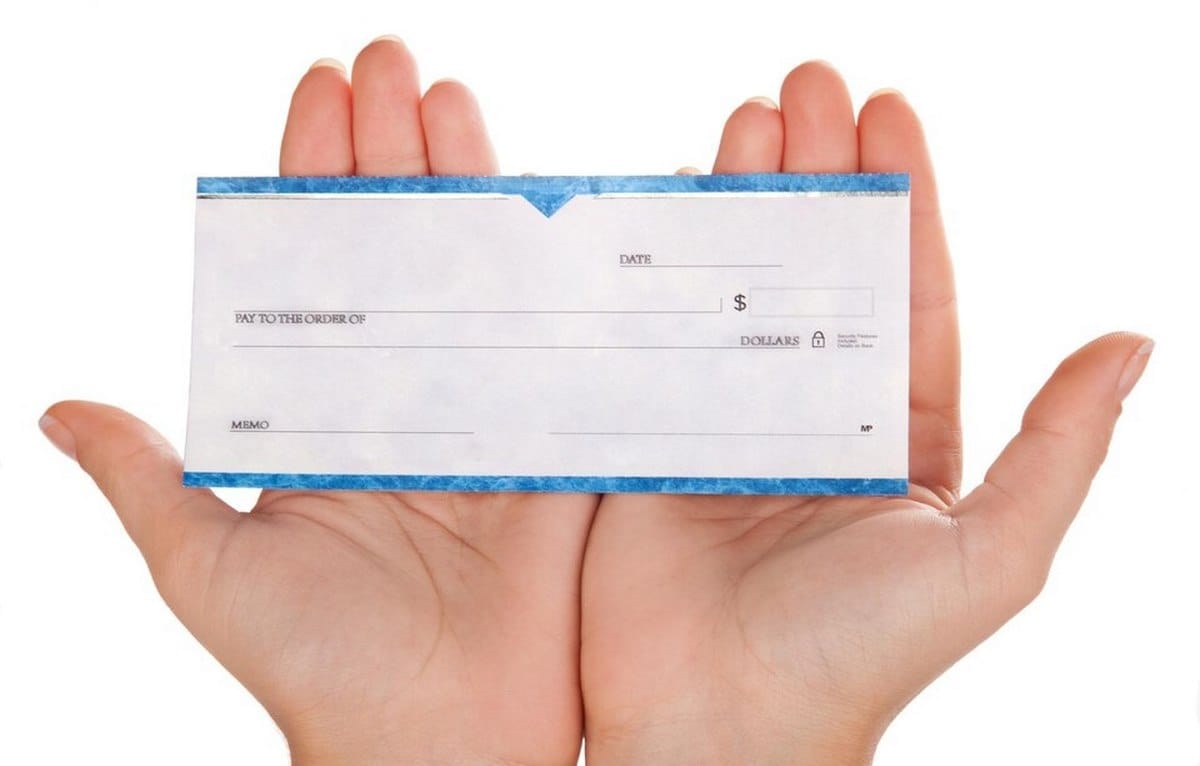Cashing a check is a fundamental banking activity that transforms a written instrument into spendable currency. This seemingly simple process is a cornerstone of personal finance, bridging the gap between a promise of payment and actual funds in hand. The act of cashing a check involves presenting the check to a bank or financial institution, which verifies the authenticity and availability of funds before disbursing the amount specified. This process, while straightforward, is imbued with various nuances that have evolved over time, reflecting changes in technology, banking practices, and financial regulations.
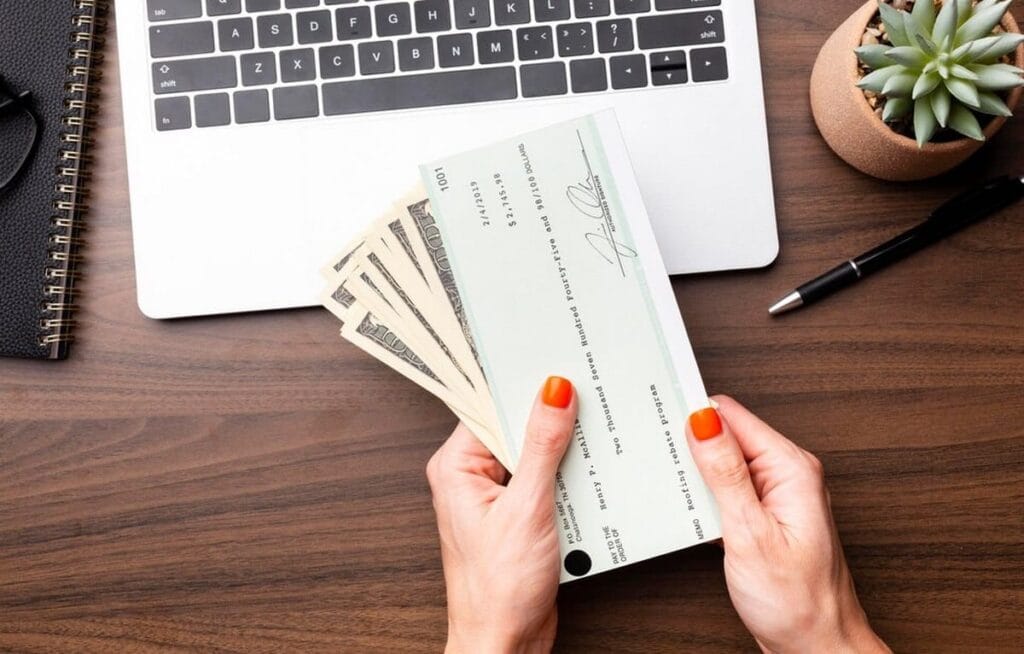
Historical Context: Evolution of Check Cashing
The Origins of Checks
The concept of checks dates back centuries, with origins in ancient civilizations where written orders of payment facilitated trade and commerce.
Modern Era Milestones
In the modern era, checks became a staple of personal and business finance, symbolizing trust and contractual obligation. The evolution of check cashing has been marked by significant milestones, from the introduction of magnetic ink character recognition (MICR) in the 1950s to the widespread adoption of electronic clearing systems.
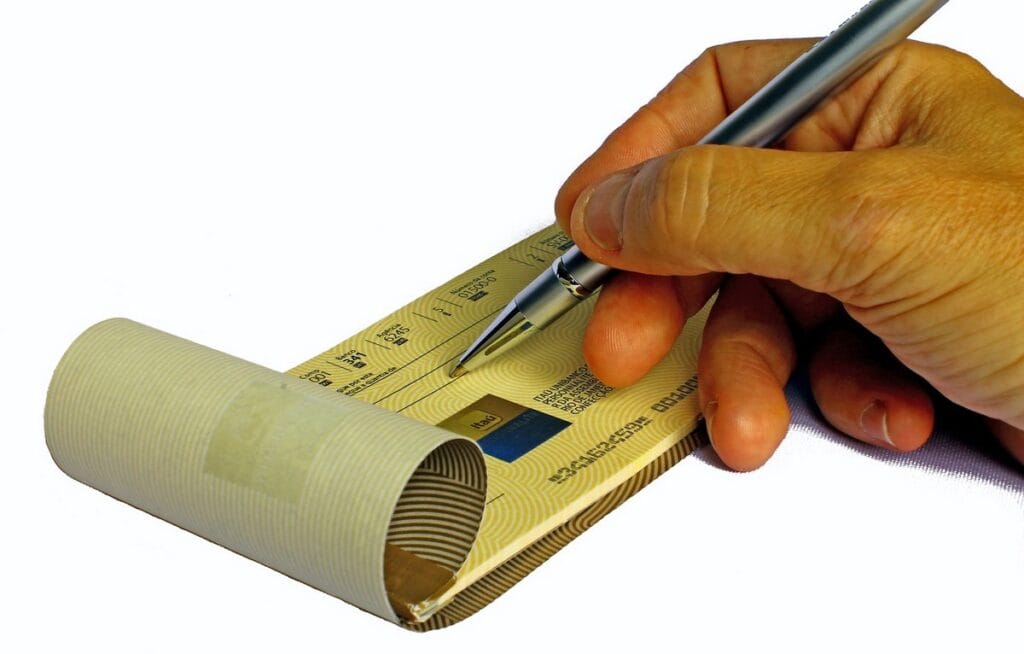
The Role of Checks in Modern Banking
Tangible Means of Transfer
In today’s digital age, checks may seem antiquated, yet they continue to play a vital role in banking. They offer a tangible, traceable means of transferring funds, particularly in scenarios where electronic payments are impractical or undesirable.
Reliability and Flexibility
Checks are widely used for payroll, vendor payments, and personal transactions, providing a reliable alternative to digital methods. Their enduring relevance is underpinned by their flexibility, security features, and the legal protections they afford both issuers and recipients.
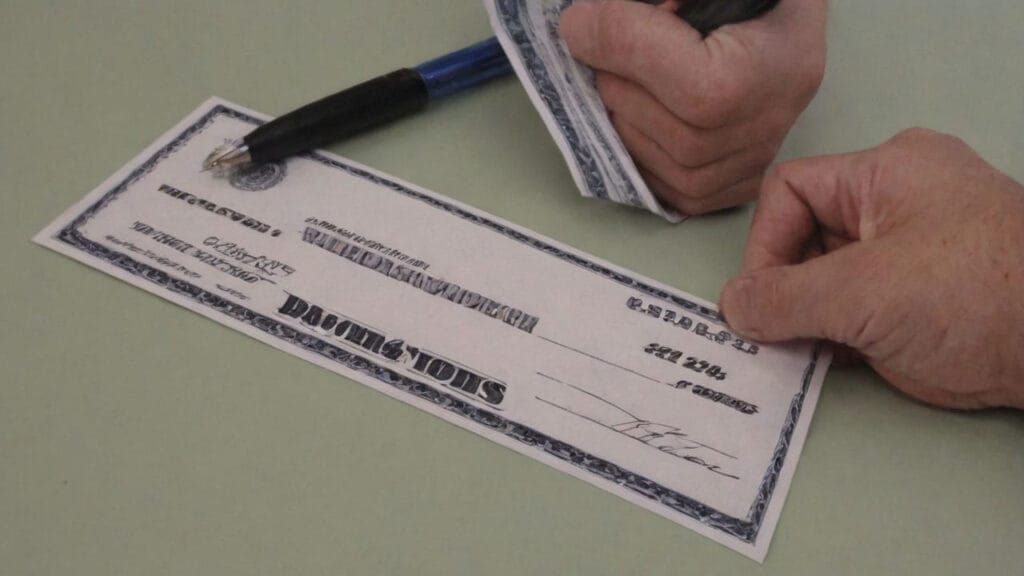
Types of Checks: Personal, Business, and More
Personal Checks
Personal checks, issued by individuals, are the most common and are used for everyday transactions.
Business Checks
Business checks are used by companies for payroll, vendor payments, and other business-related expenses.
Certified and Cashier’s Checks
Certified checks are guaranteed by the issuing bank, ensuring the availability of funds. Cashier’s checks are drawn on the bank’s own funds, offering a higher level of security.
Other Types of Checks
Additionally, there are traveler’s checks, money orders, and electronic checks, each catering to specific financial needs.
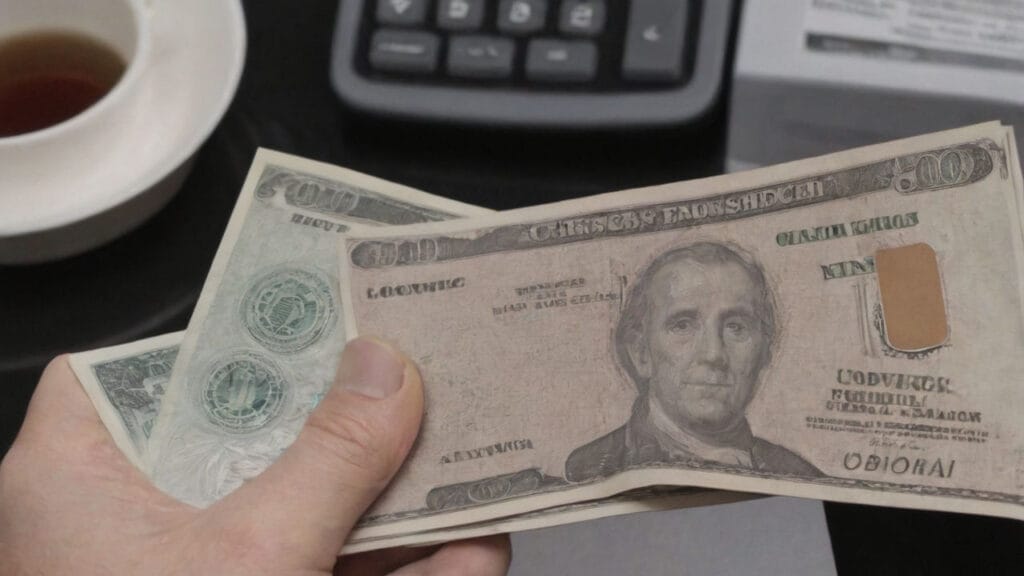
Why Cash Checks? The Importance in Personal Finance
Immediate Access to Funds
Cashing checks is integral to personal finance, providing immediate access to funds needed for daily expenses.
Convenience and Cash Flow Management
For individuals without bank accounts, cashing checks at retail locations or check-cashing services offers a crucial lifeline. Even for those with bank accounts, cashing a check can be a convenient way to access funds quickly, bypassing the waiting period for check clearance. This practice is particularly important in managing cash flow, budgeting, and ensuring timely payment of bills and obligations.
Endorsing a Check: How to Sign Properly
Blank Endorsements
A blank endorsement, simply the recipient’s signature, allows anyone in possession of the check to cash it.
Restrictive Endorsements
A restrictive endorsement, such as “For Deposit Only,” limits the check’s use to deposit into a specified account.
Special Endorsements
Special endorsements, transferring the check to another party, require careful handling to ensure accuracy and legality.
The Process of Cashing a Check: Step-by-Step Guide
Verifying the Check’s Authenticity
The recipient presents the check to a bank teller or check-cashing service, along with required identification. The financial institution then verifies the check’s details, including the issuer’s information and available funds.
Receiving the Cash
Once verified, the check is endorsed, and the recipient receives the specified amount in cash. This process, while methodical, ensures the security and integrity of the transaction, safeguarding against fraud and errors.
Where to Cash a Check: Banks, Credit Unions, and Alternatives
Banks and Credit Unions
Banks and credit unions are the most common venues, providing secure and often fee-free services for account holders.
Retail Stores
Retail stores, such as grocery chains and big-box retailers, offer check-cashing services, typically for a fee.
Check-Cashing Outlets
Dedicated check-cashing outlets provide additional options, catering to those without bank accounts or in need of immediate funds.
Identification Requirements: What You Need to Bring
Commonly Accepted Forms of ID
Commonly accepted forms of ID include driver’s licenses, state-issued identification cards, and passports. Some institutions may accept alternative forms of identification, such as military IDs or immigration documents.
Ensuring Preparedness
It’s essential to present valid, unexpired identification that matches the name on the check. Failure to provide adequate ID can result in delays or denial of the cashing service, underscoring the importance of preparedness.
Fees and Costs: Understanding the Charges
Fee Structures
Fees can vary widely, from a flat rate to a percentage of the check amount. Retailers and check-cashing services often impose higher fees, reflecting the convenience and immediacy of their services.
Managing Costs
Understanding these costs is crucial for managing personal finances, as excessive fees can erode the value of the check. Comparing options and choosing the most cost-effective method can save money and enhance financial efficiency.
Electronic Check Cashing: The Digital Age Solution
Capturing Check Images
This process involves capturing the check’s image and submitting it electronically for verification and processing. Many banks offer this service through mobile apps, allowing customers to deposit checks remotely.
Benefits of Electronic Check Cashing
Electronic check cashing provides convenience, speed, and security, reducing the risk of lost or stolen checks. It also streamlines the banking process, enabling faster access to funds and enhancing overall financial management.
Mobile Check Deposit: Cashing a Check from Your Phone
Using Smartphone Apps
Mobile check deposit is a popular feature offered by many banks, allowing customers to deposit checks using their smartphones. This process involves taking photos of the front and back of the check and submitting them through the bank’s app.
Ensuring Accuracy
While highly convenient, users must ensure proper photo quality and adherence to the bank’s guidelines to avoid errors and delays.
Safety Tips: Protecting Yourself When Cashing a Check
Verifying Legitimacy
To protect yourself, ensure the check is legitimate and verify the issuer’s information. Use reputable check-cashing services and avoid endorsing the check until at the cashing location.
Securing Identification
Keep identification secure and be cautious of sharing personal information. If using mobile check deposit, ensure your smartphone is secure and use strong passwords for banking apps.
Common Issues and How to Resolve Them
Insufficient Funds
If a check bounces due to insufficient funds, contact the issuer to resolve the issue.
Unclear Endorsements
For unclear endorsements, re-signing or providing additional information may be required.
Mismatched Identification
Mismatched identification can be addressed by updating records or providing alternative ID forms.
Cashing Post-Dated and Stale-Dated Checks
Handling Post-Dated Checks
Banks may refuse to cash post-dated checks before the specified date.
Managing Stale-Dated Checks
Stale-dated checks may be subject to additional verification or may not be accepted at all. Communicating with the issuer and the bank can clarify the status and negotiability of these checks.
International Checks: Special Considerations
Currency Conversion and Processing Times
Cashing international checks involves additional complexities, such as currency conversion, longer processing times, and higher fees.
Bank Policies
Banks may require detailed information about the check and the issuing foreign bank. Exchange rates and conversion fees can significantly affect the amount received.
Cashing a Check Without a Bank Account: Options Available
Retailers and Check-Cashing Services
For individuals without bank accounts, several options are available for cashing checks. Retailers, check-cashing services, and prepaid card providers offer alternatives to traditional banks.
Ensuring Financial Inclusion
Exploring different options and understanding their costs and requirements can help unbanked individuals choose the best solution for their needs.
The Future of Check Cashing: Trends and Predictions
Technological Advancements
Digital and mobile check-cashing solutions are expected to become more prevalent, offering enhanced convenience and security.
Emerging Payment Paradigms
Blockchain technology and cryptocurrency may introduce new paradigms for payment and verification. As traditional check usage declines, innovative solutions will emerge to meet the changing needs of consumers.
Frequently Asked Questions (FAQs)
Is a Check Cash or Non-Cash?
A check is considered a non-cash payment instrument. It represents a promise to pay a specific amount and requires banking processes to convert into cash.
What is the Meaning of Service to Cash?
Service to cash refers to services provided by financial institutions or other entities to convert non-cash instruments, such as checks, into cash.
What is Cash Processing Service?
Cash processing service involves handling, verifying, and managing cash transactions for businesses or individuals. This includes cash deposits, withdrawals, and conversion of checks to cash.
What are Cash Out Services?
Cash out services allow individuals or businesses to convert checks or digital funds into physical cash. These services can be provided by banks, ATMs, or dedicated check-cashing outlets.
Why Do People Use Check Cashing Service?
People use check cashing services for immediate access to funds, especially if they do not have a bank account or need cash outside regular banking hours. These services provide convenience and quick liquidity.
How Does Cheque Cashing Work?
Cheque cashing involves presenting a check to a bank or check-cashing service. The service verifies the check’s authenticity and available funds, endorses it, and provides the specified amount in cash.
Is Cashing a Check the Same as Cash?
Cashing a check is not the same as cash. Cashing a check is the process of converting a check into cash. A check is a non-cash instrument until it is cashed or deposited.
Is There a Limit to Cashing a Check?
There is no universal limit to cashing a check, but individual banks and check-cashing services may impose limits based on their policies and the type of check being cashed. Source
Can Checks Be Cashed at Any Bank?
Checks can typically be cashed at the issuing bank or where the account is held. Some banks may cash checks for non-customers, but they may charge a fee. Not all banks offer this service. Source
What Does It Mean When a Check is Cashed?
When a check is cashed, the check’s value is converted into cash. The bank withdraws the specified amount from the issuer’s account and provides it to the recipient in cash.
Is it Safe to Cash Checks?
Cashing checks is generally safe, especially when done at reputable banks or financial institutions. However, caution is needed to avoid scams and fraud, and ensure proper identification is used.
Is Cheque a Bank or Cash?
A cheque is neither a bank nor cash. It is a written order directing a bank to pay a specific amount from the issuer’s account to the recipient. It requires processing to become cash. Source
Why Are Checks Better Than Cash?
Checks are considered better than cash in some cases due to their traceability, security, and ability to provide a record of payment. They also reduce the risk of carrying large amounts of cash and facilitate large transactions without immediate physical currency.


